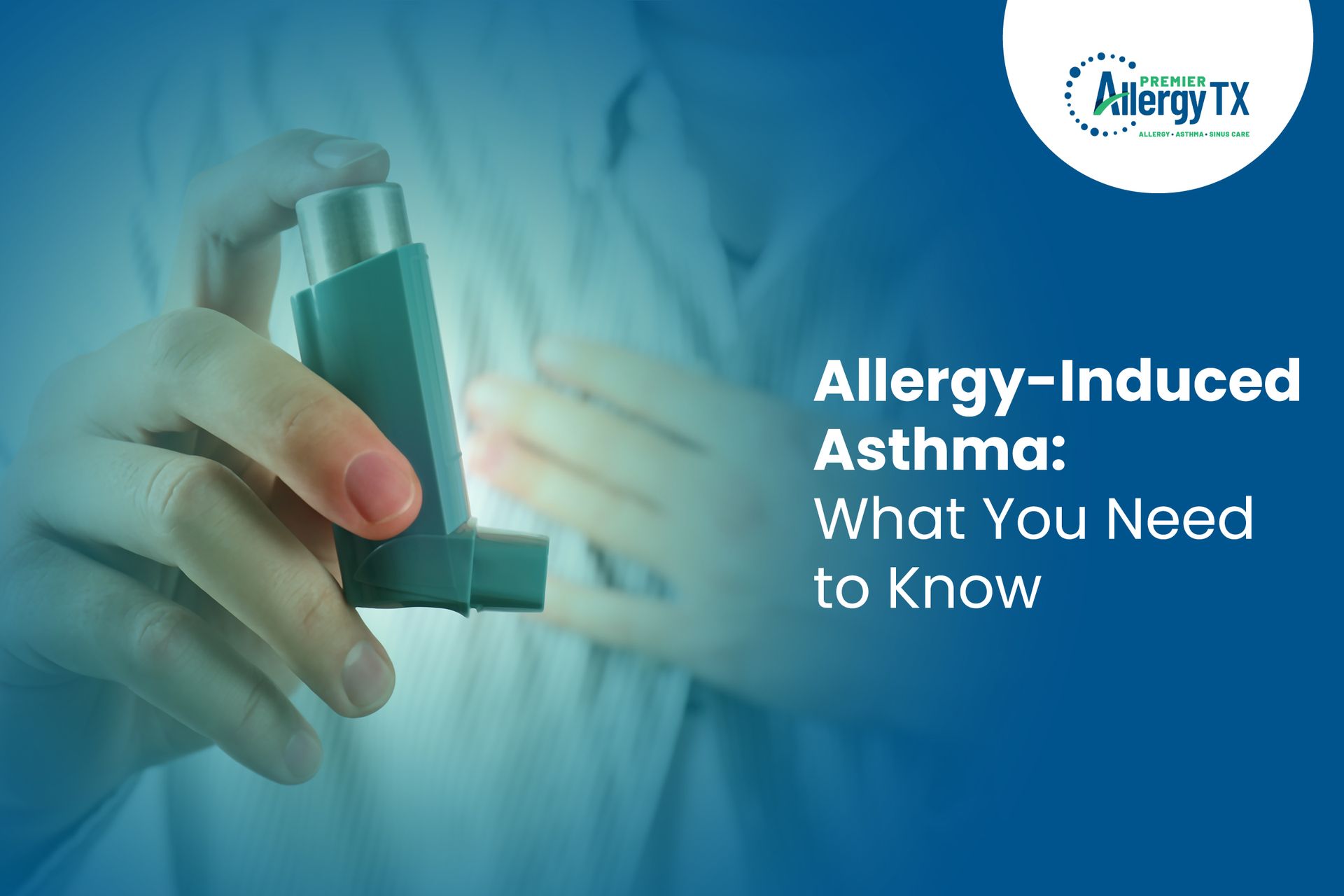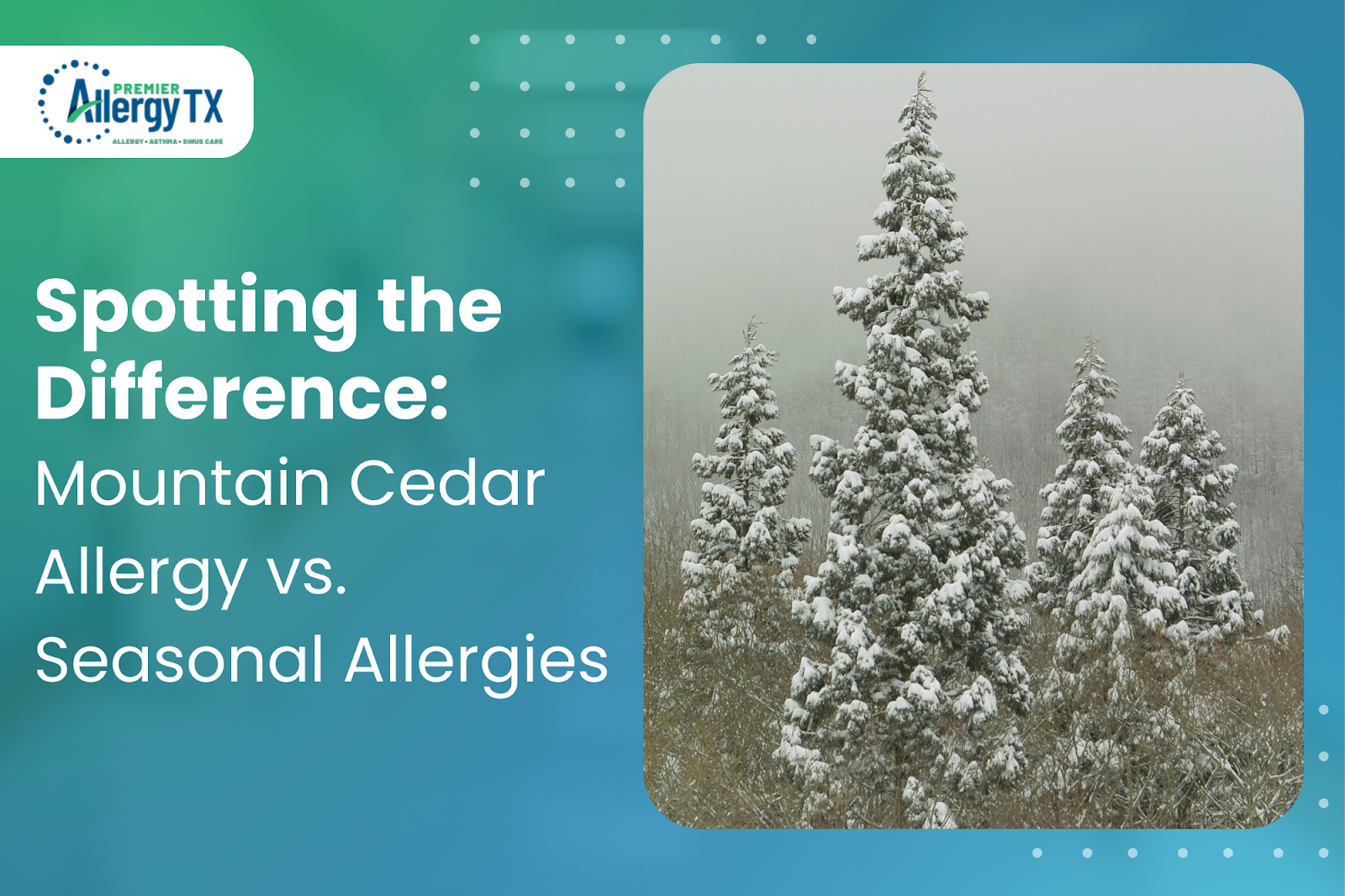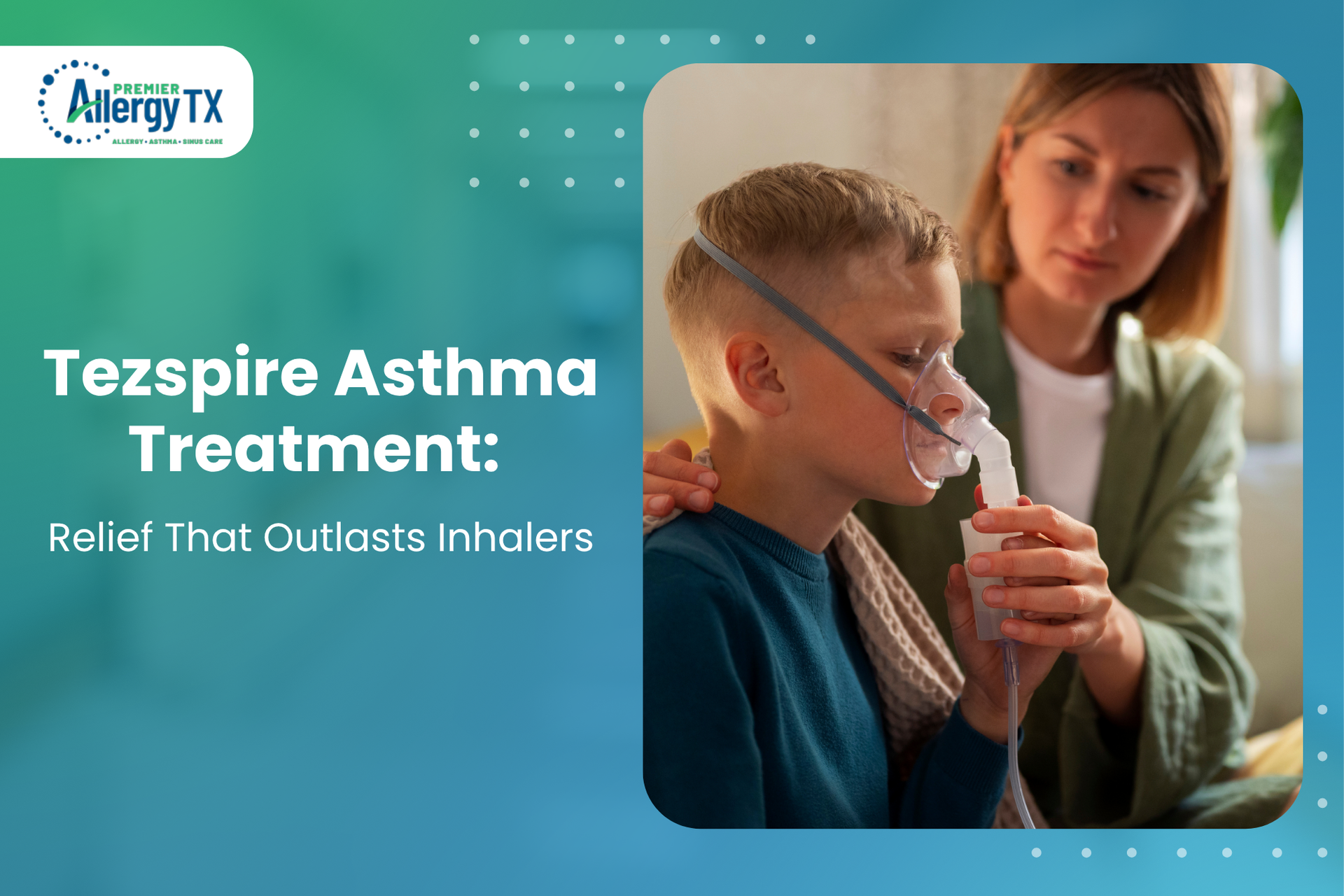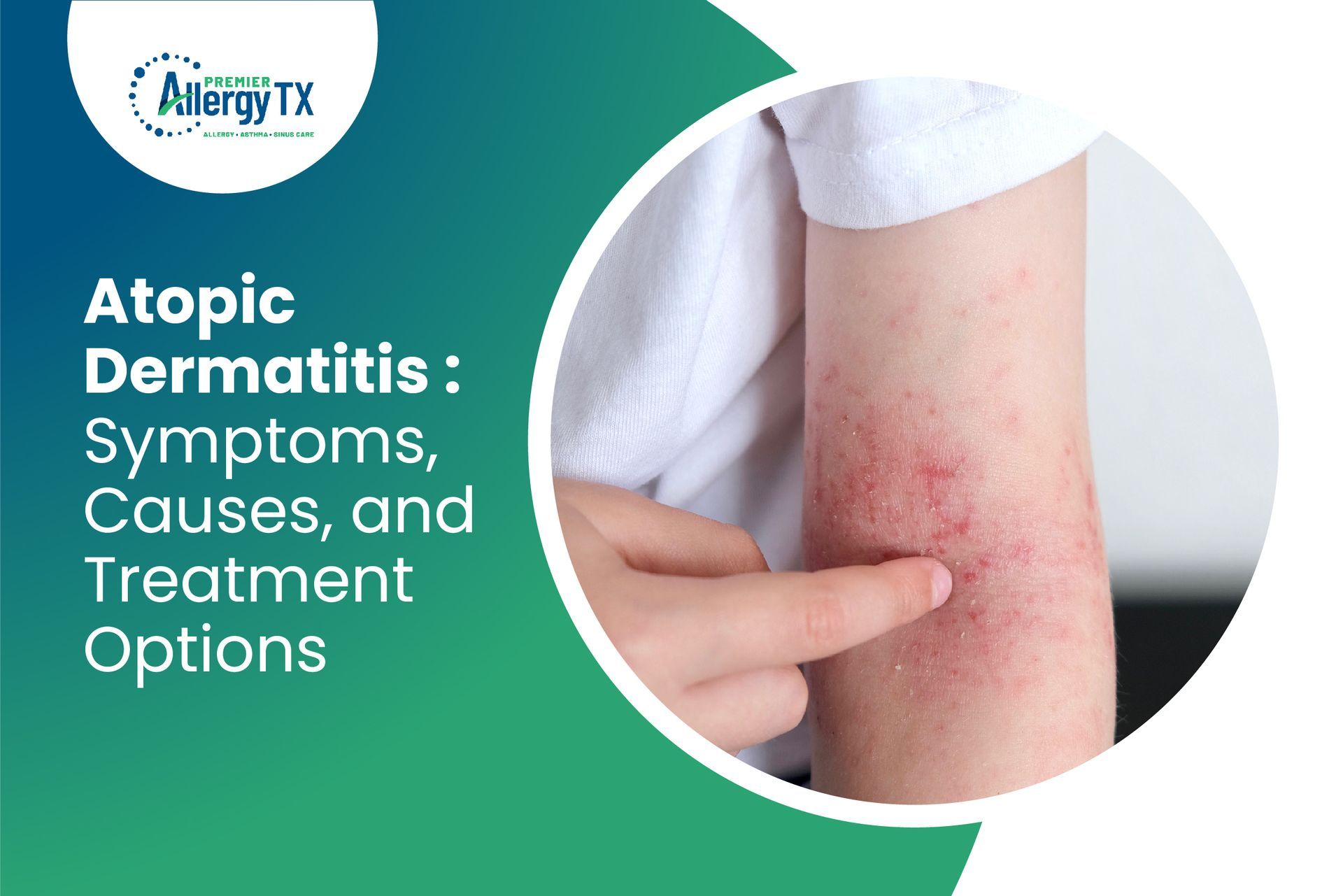Millions of individuals worldwide have
asthma, a chronic respiratory illness. It is a disorder that causes inflammation and airway constriction, making breathing challenging. Various factors, including allergens, exercise, and pollution, can trigger asthma. One type of asthma brought on by exposure to allergens is allergy-induced asthma. This blog will discuss what you need to know about allergy-induced asthma.
What is Allergy-Induced Asthma?
Allergies cause
allergy-induced asthma, sometimes referred to as allergic asthma. Allergens bring on allergic reactions. Common allergens that trigger allergy-induced asthma include pollen, dust mites, pet dander, and mold.
When a person with allergy-induced asthma is exposed to an allergen, their
immune system overreacts and releases chemicals that cause inflammation and narrowing of the airways. This makes breathing difficult for the person and can lead to an asthma attack.
Allergy-Induced Asthma Symptoms
Allergy asthma symptoms are similar to other asthma types. They include the following:
These
allergic asthma symptoms can range from mild to severe and occur anytime, depending on the person's exposure to allergens. In some cases, allergy-induced asthma can be life-threatening.
You may also read more about other allergy and asthma symptoms through our dedicated blog,
"Don't Let Back to School Mean Back to Allergy and Asthma Symptoms."
Diagnosing Allergy-Induced Asthma
If you suspect you have allergy-induced asthma, it is important to see a doctor. To confirm the diagnosis, your doctor will conduct a medical examination and might suggest some testing. These tests include the following:
- Spirometry: This test evaluates your ability to breathe in and out and how rapidly you can exhale. It can help determine the severity of your asthma.
- An allergy skin test involves exposing your skin to small amounts of common allergens to see if you have an allergic reaction.
- Blood test: This test can measure the number of certain antibodies in your blood that is produced in response to allergens.
Treatment for Allergy-Induced Asthma
The treatment for allergy-induced asthma usually involves two types of medication: quick-relief medications and long-term
control medications.
Quick-relief Medications
Also known as rescue medications, they relieve asthma symptoms quickly during an asthma attack. These medications include
bronchodilators or inhalers for allergies, which facilitate easier breathing by loosening the muscles surrounding the airways.
Long-term Control Medications
They are used to prevent asthma symptoms from occurring. These medications include inhaled
corticosteroids, which reduce inflammation in the airways, and
leukotriene modifiers,
which block the chemicals that cause inflammation.
In addition to medication, there are other ways to manage allergy-induced asthma.
These include:
- Avoiding allergens: Identify and avoid the allergens that trigger your asthma. This may include avoiding pets, using allergen-proof bedding, and keeping your home clean and dry.
- Immunotherapy: also known as allergy shots, involves gradually exposing you to increasing doses of allergens to desensitize your immune system to them.
Monitoring your symptoms: Keep track of your asthma symptoms and peak flow readings so you can identify any changes and adjust your treatment plan accordingly.
Preventing Allergy-Induced Asthma
Allergy-induced asthma can be a challenging condition to manage. Still, there are several steps you can take to help prevent asthma attacks. Taking a proactive approach to your health and well-being can reduce your risk of experiencing symptoms and improve your quality of life. Here are some tips for preventing asthma from allergies:
Identify and Avoid Allergens
The first step in preventing allergy-induced asthma is identifying the allergens that trigger your symptoms. Common allergens that can trigger asthma include pollen, dust mites, pet dander, and mold. Once you have identified the allergens that affect you, avoid them as much as possible.
For instance, if you have a pollen allergy, you may need to limit your time outdoors during high pollen count days. By routinely vacuuming your home and choosing allergen-proof bedding, you can reduce dust in your home if you have a dust mite allergy.
Maintain a Healthy Environment
Maintaining a healthy environment can also help prevent allergy-induced asthma. Keeping your home clean and dry can help reduce the risk of mold growth, which can trigger asthma symptoms.
Dehumidifiers can assist in reducing air moisture, and routine surface cleaning can help reduce dust and other allergens.
It’s also important to ensure your home is well-ventilated, especially in areas like the bathroom and kitchen. Proper ventilation can help reduce the risk of mold growth and prevent the buildup of allergens in the air.
It is suggested to close windows and doors when allergen counts are high because doing so can help reduce the allergens entering your home or workspace. Allergens, such as pollen, mold spores, and dust mites, are commonly found in the air, and they can easily enter your indoor environment through open windows and doors.
Take Your Medication as Prescribed
If you have been diagnosed with allergy-induced asthma, taking your medication as prescribed is important. This can include both quick-relief drugs to treat asthma attacks and long-term control medications to prevent symptoms from occurring.
Ensure you understand how to use your medication and follow your doctor’s instructions properly. If you have any questions about your medication or treatment plan, don’t hesitate to ask your doctor or pharmacist.
Follow Your Asthma Action Plan
Your doctor may develop an
asthma action plan for you to follow. This plan outlines the steps you should take if you experience asthma symptoms or have an asthma attack. Ensure you understand your asthma action plan and always keep a copy of it with you.
Live a Healthy Lifestyle
Living a healthy lifestyle can help prevent asthma symptoms from occurring. It typically involves regular exercise, a healthy diet, and cutting back on smoking. Exercise can help lessen asthma symptoms and improve lung function. However, warm up properly and avoid exercising in cold or dry air. Overall health can be supported by a balanced diet rich in fruits and vegetables. Avoiding tobacco smoke, including
secondhand smoke, is important for preventing asthma symptoms from occurring.
Take Control of Your Allergy-Induced Asthma Today!
Allergy-induced asthma is a common condition that can significantly impact a person’s quality of life. It is caused by exposure to allergens, such as pollen, dust mites, pet dander, and mold, which can trigger inflammation in the airways and cause asthma symptoms. By understanding allergy-induced asthma and taking steps to manage it, you can reduce the frequency and severity of asthma symptoms and live a healthy, active life.
If you’re looking for an “asthma treatment center in San Antonio” or an “asthma center in San Antonio, Texas,” go no further than Premier Allergy, Texas. Our dedicated team of asthma experts and allergists, led by
Dr. John F. Freiler, is committed to providing comprehensive care for asthma patients. In addition to treating symptoms, we listen to our patients to identify workable solutions.
Do not hesitate to ask us questions such as “Can allergies cause asthma?” We will be eager to answer you immediately. Start your road toward allergy relief and effective asthma management with San Antonio Allergist, your trusted asthma center in San Antonio. Contact us at (210) 791-7856 or visit
Premier Allergy TX for more information and to schedule a consultation."















